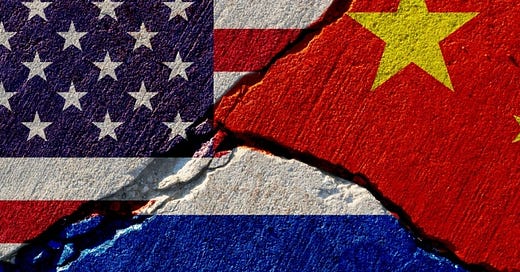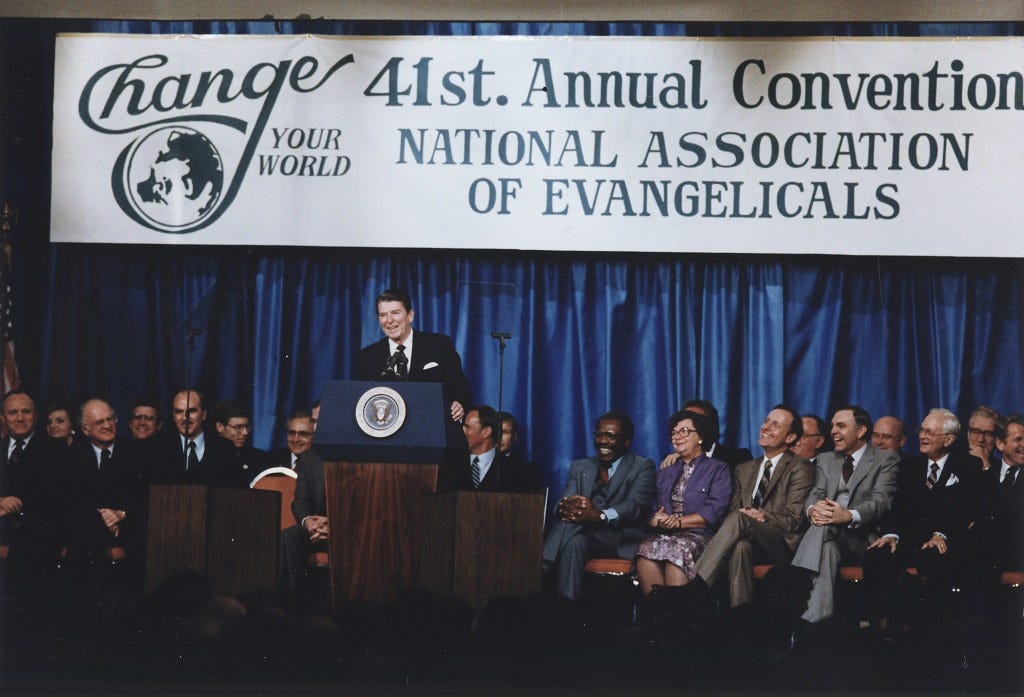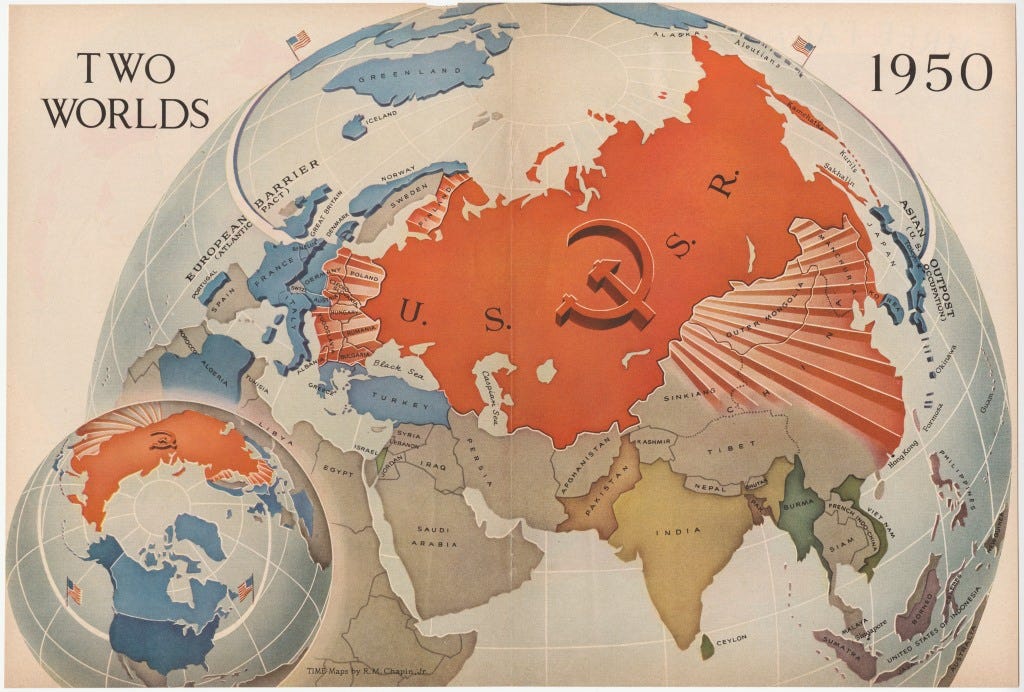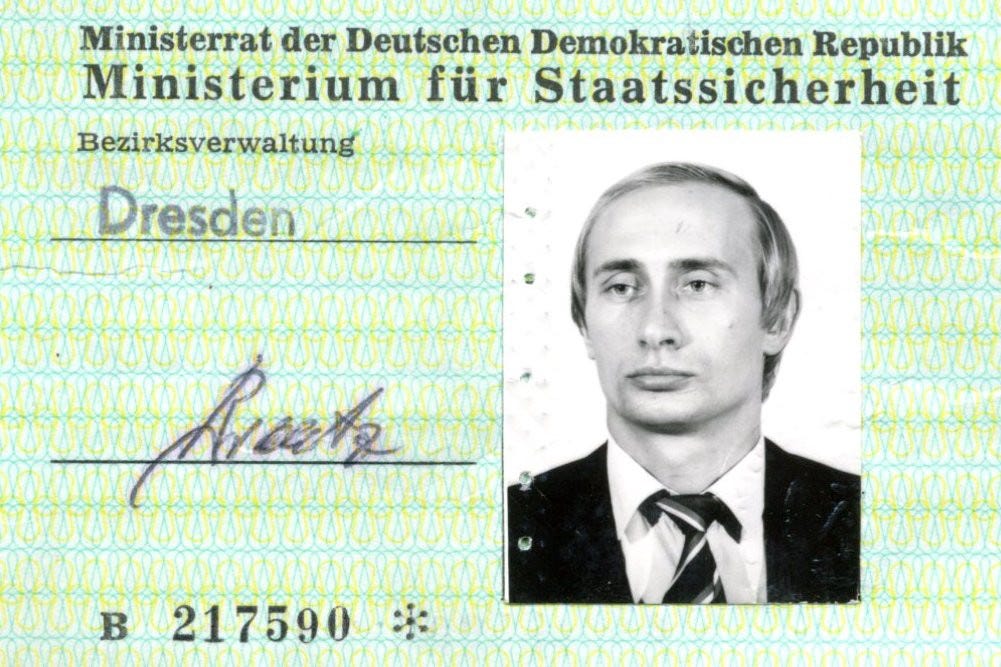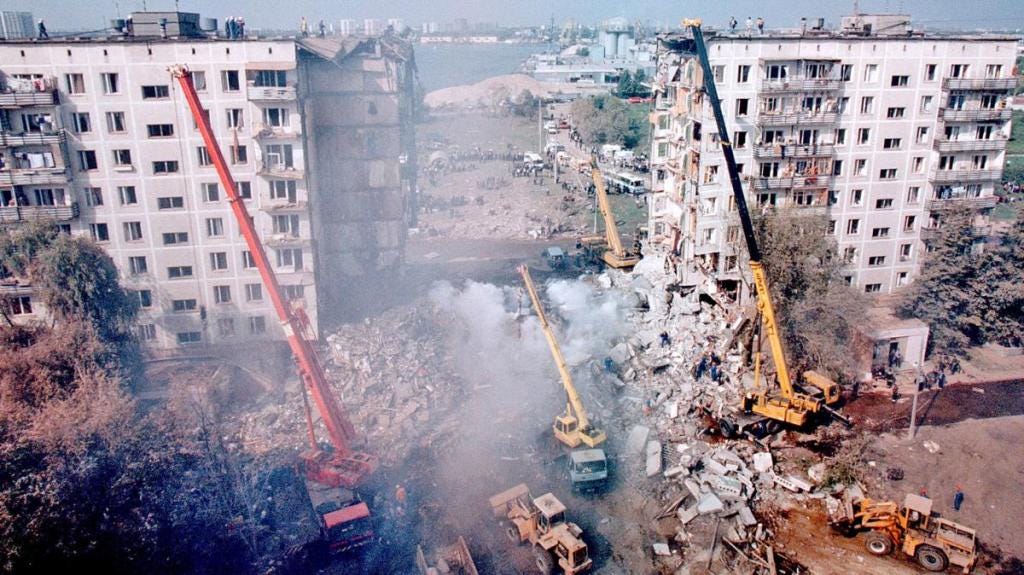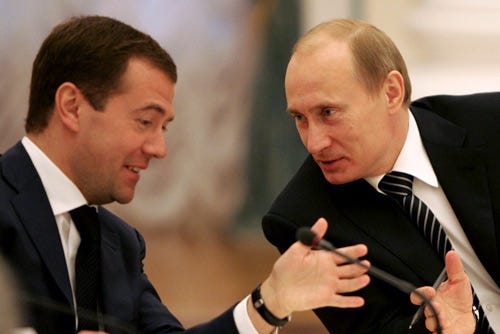The Evil Empire - Part 1
The Fall of the Soviet Union, the rise of Putin, & Orthodox Nationalism
a repost from a prior blog - this is the 1st part to the series The Evil Empire with part 2 being here - Thanks, Aaron W. (PS)
History
It was CS Lewis who, in his unforgettable Screwtape Letters, wrote:
“The greatest evil is not done now…in those sordid ‘dens of crime’ that Dickens loved to paint. It is…not even done in the concentration camps and labor camps. In those we see its final result, but it is conceived and ordered; moved, seconded, carried and minuted in clear, carpeted, warmed, and well-lighted offices, by quiet men with white collars and cut fingernails and smooth-shaven cheeks who do not need to raise their voice”
Well, because these “quiet men” do not “raise their voices,” because they sometimes speak in soothing tones of brotherhood and peace, because like other dictators before them, they’re always making “their final territorial demand,” some would have us accept them at their word and accommodate ourselves to their aggressive impulses. But if history teaches anything, it teaches that simpleminded appeasement or wishful thinking about our adversaries is folly. It means the betrayal of our past, the squandering of our freedom.
-President Ronald Reagan, “The Evil Empire Speech,” 8 March 1983
IN March 1983, President Ronald Reagan, with the beginning of heightened tension in between the Soviet Union and the United States, gave the above speech to attendees of the National Association of Evangelicals Convention in Orlando, Florida. This speech represented to many an escalation of the rhetoric in the Cold War which was further enflamed by the Able Archer Scare of ’83 and the (possibly mythical) almost-beginning of World War III in Europe. This also was the end of a prolonged period of détente which lasted from Nixon’s visit to the Soviet Union in 1971 to the 1979 Soviet invasion of Afghanistan with it’s last fizzle in the early 80s.
FOR Reagan, however, this speech framed the (what we know now as) last gasps of the Cold War as a moral fight between Good (democracy & freedom) versus Evil (totalitarianism and communism). The Soviet Union had begun small steps of liberalization at this point (The Khrushchev Thaw), but there was still a general air of repression and lack of freedom of travel, religion, and speech within Russia and the other members of the Union. The Soviets also had expanded beyond their borders with their supported-coup and later invasion of Afghanistan in 1979. They did, however, not proceed with an invasion of Poland in 1980/81 after the emergence of the anti-Communist Solidarność (Solidarity) trade union, which was unlike their crackdowns & invasions in Hungary (1956) and Czechoslovakia (1968).
AT this time, a little known Комитет государственной безопасности (KGB) agent named Vladimir Putin was working in East Germany. He was not a committed communist, per his own admission, but was a committed vassal of the State. He would rise through the ranks starting as Deputy Mayor of St. Petersburg and transitioning to handling all Russian Government foreign properties and then served as Yelstin’s Chief of Staff. With an inexplicable rise, he rose to Deputy Prime Minister in 1999, Acting President in 1999-2000, and elected his first term as President in 2000.
IN 1999, a series of bombs went off in apartment buildings in across Russia, including Moscow, which killed over 300 people. It was quickly blamed on Chechen rebels. Since 1994, Russia and Chechnya had been in a state of war (and later ceasefire) with the First Chechen War from 1994-96 and the Second beginning in September 1999. Many believe that these bombs were planted by the FSB in order to provoke a response from the Russian people towards Chechnya. In this, many believe that Putin was the mastermind.
Since 2000, Russia has been led by the United Russia party with Vladimir Putin as President for 18 of 22 years. He has served four (4) presidential terms (2000-04; 2004-08; 2012-18; and 2018-24) and one (1) as Prime Minister/Premier of the Russian Federation (2008-12). Being the longest serving head of state of Russia, Putin and his party have shaped domestic and foreign policy to fit his worldview– a worldview shaped and molded by Russian philosophers Alexander Dugin (“Putin’s Brain”), Alexander Surov (“Putin’s Rasputin), and Ivan Illyin (anti-communist Christian authoritarian).
DURING this time, the Russian Orthodox Church, which had been suppressed under the atheistic Soviet regime, began to gain strength and power again with it’s partnership with the State through Putin. The current Patriarch of All Rus since 2009, Kirill of Moscow, and the former, Alexi, who was Patriarch for the prior 18 years, have both been named as KGB agents (more than informers) during Soviet rule.
Kirill has openly supported Putin and has baptized many political libelous policies and decisions with the backing and blessing of the ROC. Most recently, Kirill has given sermons and offered public support and prayers for a Russian victory in Ukraine. Kirill is a major part of the rise and continued power of Putin and the baptism of Putinism as a form of Christian nationalism.
OVER the next few weeks, I am planning on exploring this topic and more as we dive deep into the underpinnings of Russia’s invasion of Ukraine and what it looks to be it’s ultimate goal under Putin.
FOR FURTHER READING
“Putin’s Philosophers,” Zabala, Santiago and Claudio Gallo. Al Jazeera, 30 Mar 2022
“The Domestic Context of Russian Foreign Policy,” Pushkin, Alexander. Brookings Institute. 2016


